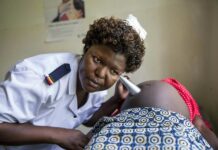A recent study by Olorunsogo, et al., (2024) titled “Epidemiological Statistical Methods: A Comparative Review of their Implementation in Public Health Studies in the USA and Africa” published in World Journal of Advanced Research and Reviews, shows that in Africa, epidemiological practices have emphasized community engagement and education in disease prevention, with a gradual pivot towards non-communicable diseases and mental health.
“
There is a shift in epidemiological methods, with the USA emphasizing data-centric approaches, while Africa prioritizes community engagement and education.– Olorunsogo et al., 2024
The article explores a thorough examination of epidemiological statistical methods, comparing their utilization in public health studies between the USA and Africa. The study discusses the transition from conventional approaches to advanced, data-centric methodologies in the USA, contrasting with the focus on community involvement and education in Africa. The study underscores the transformative impact of technology on epidemiological research, improving efficiency and expanding the scope of investigations.
The study further addresses the obstacles related to data reliability and accessibility, particularly contrasting the situations in the USA and Africa. The study delves into how cultural and socioeconomic factors shape epidemiological research and public health outcomes. The authors aim to deepen insights into global health dynamics while offering recommendations for future research and public health strategies.
How the study was conducted
The study adopts a qualitative methodology to compare epidemiological statistical methods in the USA and Africa. The study employs qualitative methodologies to explore disease dynamics and control strategies across diverse regions. Following the principles of qualitative research, the data collection process ensures systematic and consistent analysis. Thematic analysis is utilized to discern and categorize key themes in epidemiological practices. This method enables a comprehensive comparison of epidemiological methods, considering the distinct dynamics present in various geographical contexts.
What the authors found
The study found a significant evolution in epidemiological methods in the United States, shifting from traditional approaches to more sophisticated, data-driven techniques. The authors found that in Africa, epidemiological practices have emphasized community engagement and education in disease prevention, with a gradual pivot towards non-communicable diseases and mental health. Furthermore, the authors found that technology plays a critical role in modern epidemiological research, enhancing efficiency and broadening the scope of investigations. In addition, the study posit that international policies significantly impact epidemiological methods, influencing public health strategies and the interplay between technology and policy.
Why is this important
The importance of the study lies in its comprehensive analysis of epidemiological statistical methods and their application in public health studies within the USA and Africa.
Comparative Analysis: It compares the evolution and effectiveness of epidemiological methods between the USA and Africa, providing insights into global health dynamics.
Technological Impact: Highlights how technology enhances modern epidemiological research, offering more efficient and broader investigations.
Policy Influence: Discusses the significant impact of international policies on epidemiological methods and public health strategies.
What the authors recommend
- The authors offer recommendations for continued innovation and aligning technological advancements with policy decisions for improved public health outcomes.
- The authors emphasize the need for ongoing innovation in epidemiological statistical methods.
- The authors further emphasize the adoption of inclusive approaches that consider socioeconomic contexts.
- In addition, the study ensures technological advancements align with policy decisions to steer future research and interventions toward effective public health outcomes.
In conclusion, this study illuminates the evolving landscape of epidemiological research, juxtaposing the approaches in the USA and Africa. Through qualitative analysis, it underscores the pivotal role of community engagement, technology, and policy frameworks in shaping public health outcomes. By fostering continued innovation and aligning advancements with inclusive strategies, the path towards effective global health solutions becomes clearer. As we navigate the complexities of disease dynamics and societal contexts, the integration of diverse methodologies and collaborative efforts remains paramount in achieving sustainable improvements in public health on a global scale.
















 The African Research (AR) Index is a comprehensive scholarly directory and database focused explicitly on journal publishers that publish and disseminate African research.
The African Research (AR) Index is a comprehensive scholarly directory and database focused explicitly on journal publishers that publish and disseminate African research.

